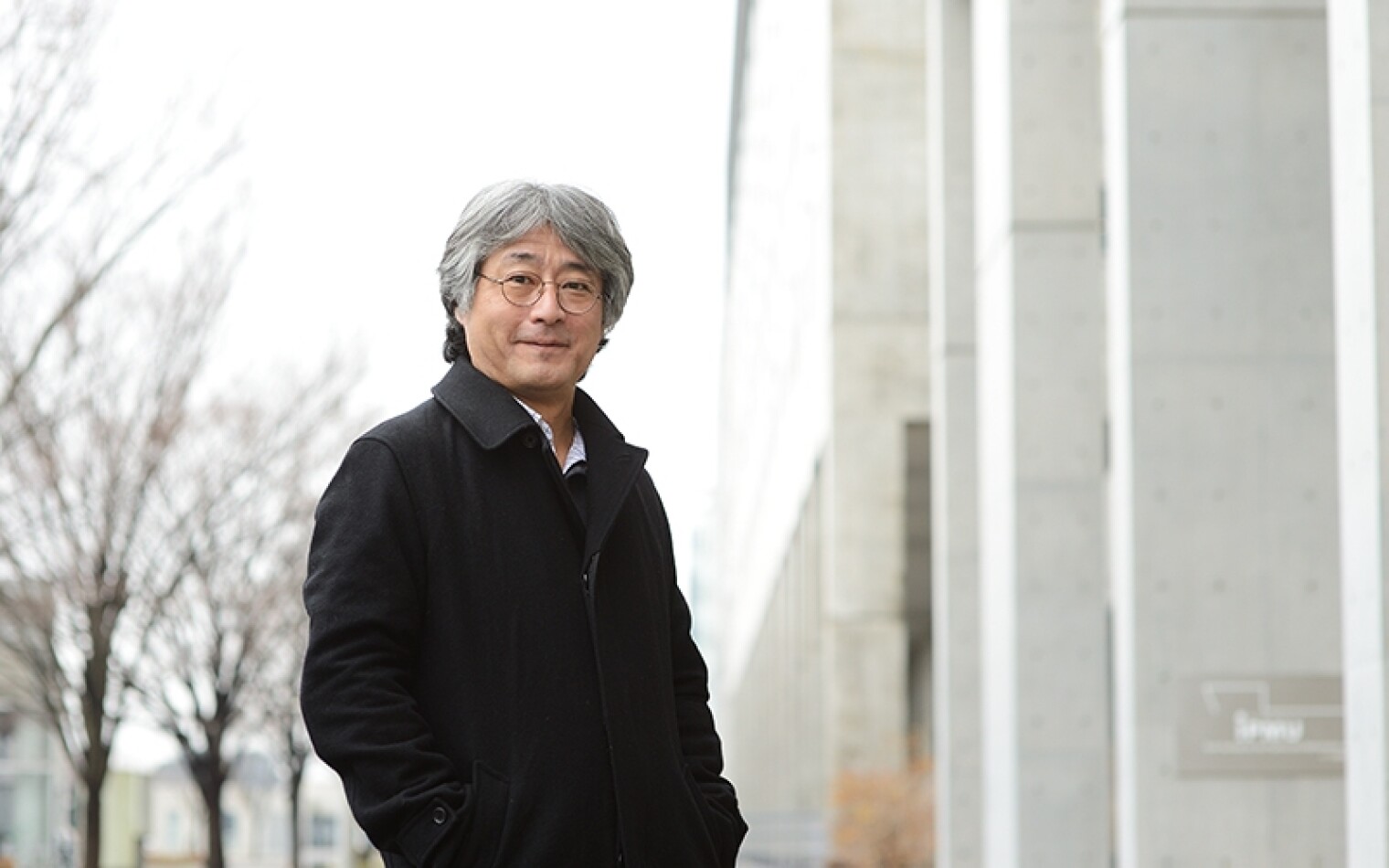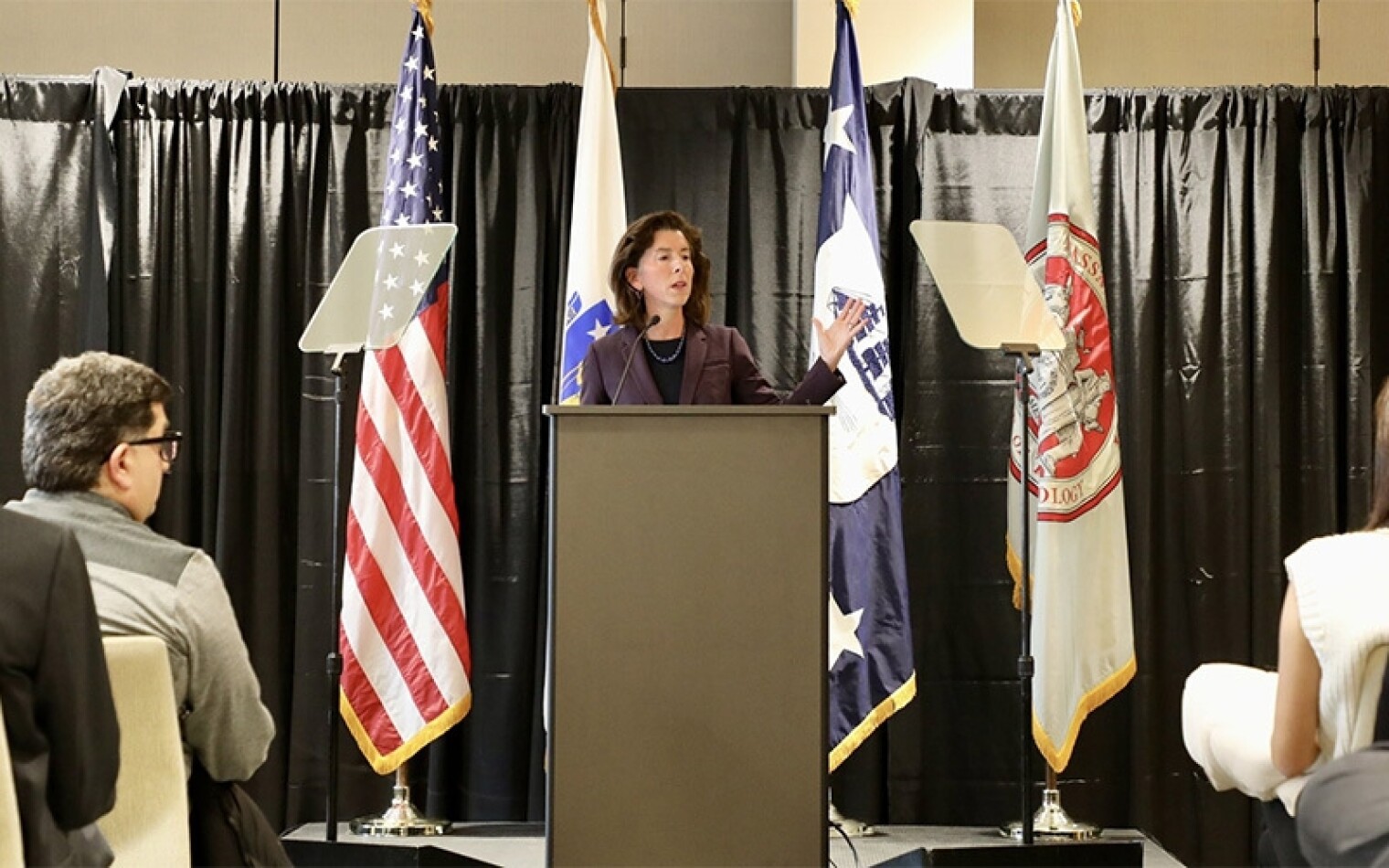| |
What’s Ahead
 |
| University of California, Berkeley theoretical particle physicist Hitoshi Murayama is chairing the latest “P5” planning exercise. (Image credit – Courtesy of UC Berkeley) |
Particle Physics Planning Process Moves Into Final Phase
At a meeting spanning Thursday and Friday, the High Energy Physics Advisory Panel (HEPAP) is formally receiving its charge from the Department of Energy and National Science Foundation initiating a new Particle Physics Project Prioritization Panel (P5) process. Like the last P5 process, which finished in 2014, the new P5 will propose a budget-constrained agenda for DOE and NSF to pursue over the next decade, along with an even longer-term strategy for the field. University of California, Berkeley theoretical physicist Hitoshi Murayama was announced as P5 chair at last summer’s “Snowmass” conference and will be speaking at this week’s meeting. Murayama reported at a National Academies meeting last week that Yale University experimental physicist Karsten Heeger is serving as P5 deputy chair and that they plan to finish recruiting the other panel members by the end of this year. The charge asks HEPAP to submit the final P5 report by October 2023.
A primary input into the P5 process will be the final report from the Snowmass conference, distilling ideas presented by the physics community, and HEPAP will hear from Fermilab physicist Joel Butler this week about that effort. Butler said at a separate Academies meeting last week that the report is likely to be finalized within weeks and offered his own impressions of priorities expressed at Snowmass, including a desire to ramp up R&D on detectors and particle colliders and to build a high-energy collider in the U.S. The HEPAP meeting will also include presentations from the co-chairs of a National Academies survey of the field of elementary particle physics that is running in parallel with the P5, as well as from the co-chairs of a HEPAP subpanel conducting a “benchmarking” study on U.S. particle physics in its international context. In addition, Gina Rameika will make her first appearance at a HEPAP meeting as the new director of the DOE High Energy Physics program, and DOE Office of Science Director Asmeret Asefaw Berhe will discuss the department’s “vision” for the office.
Basic Energy Sciences Panel Receiving Two Charges
At a meeting on Wednesday, the Basic Energy Sciences Advisory Committee will receive two charges from the Department of Energy that follow up on a 2021 report the committee produced spotlighting areas where the U.S. is falling behind other countries in research and user facilities the department’s Basic Energy Sciences (BES) program oversees. The first new charge will focus on investment strategies for research funding, while the second asks the committee to look specifically at the five Nanoscale Science Research Centers overseen by the BES program. At its meeting, the committee will also discuss reports from recent roundtables on biopreparedness and nuclear energy innovation and hear an update on the Office of Science’s diversity initiatives from Director Asmeret Asefaw Berhe. In addition, there will be a panel on computational infrastructure featuring the head of DOE’s Advanced Scientific Computing Research program and officials from Argonne National Lab and Berkeley Lab.
Science Committee Probing Harassment in Antarctica
The House Science Committee is holding a hearing on Tuesday titled, “Building a Safer Antarctic Research Environment.” National Science Foundation Chief Operating Officer Karen Marrongelle will discuss the agency’s response to an independent report that found that sexual assault and harassment are common at Antarctic research facilities it supports. At a meeting last week of the National Science Board, which oversees NSF, Marrongelle reviewed recent steps the agency has taken to improve its prevention and response efforts, including conducting a series of town halls in Antarctica, revamping its harassment prevention training programs, and standing up a new office dedicated to supporting victims. Also testifying is Kathleen Naeher, COO of the Civil Group at Leidos, the contractor that operates NSF’s Antarctic facilities. Leidos was implicated in the report for failing to discipline perpetrators and retaliating against workers who filed complaints. Two other witnesses are also appearing: University of Chicago astronomer Angela Olinto and Anne Kelly, deputy director of the Nature Conservancy’s Alaska Chapter and a co-author of a 2021 workshop report that recommends strategies for promoting safety in the field sciences.
Research Security Panel Gauging Global STEM Talent Flows
The National Academies’ research security roundtable is meeting on Tuesday and Wednesday to review efforts to quantify the contributions of foreign-born scientists to the U.S. Among the analyses it will look at are a White House report on how a large fraction of the U.S. workforce in quantum information science is from abroad, a White House-commissioned report on the “economic benefits and losses from foreign STEM talent,” and a recent Academies study on protecting critical technologies. The roundtable will also hear presentations on surveys from the American Physical Society and Asian American Scholar Forum that suggest recent research security campaigns by the federal government, and particularly the Justice Department’s China Initiative, have had an acute chilling effect on the climate for international scholars in the U.S. (APS is an AIP Member Society.)
House Plans to Take Up Compromise Defense Bill
Lawmakers are poised to take up a compromise version of this year’s National Defense Authorization Act on the House floor later this week, with the final text expected to be released as soon as Monday. The House already passed its own version of the bill in September, but the Senate never held a floor debate on its counterpart version, making this the second year in a row a compromise has been negotiated without formally convening a conference committee. Neither version included particularly far-reaching science and technology policy proposals this year, but it is possible the final bill will include research security provisions that were excluded from the CHIPS and Science Act this past summer. Advocates have also been citing national security in a bid to change the law to make it easier for highly skilled individuals to stay in the U.S., but key lawmakers have generally insisted such policy changes be made only through a focused immigration reform bill. Alongside the NDAA this week, the House is planning on taking up the bipartisan EAGLE Act, which would phase out country-specific caps on employment-based green cards, easing the pathway to U.S. residency for some skilled immigrants. However, there has been no sign so far that the Senate plans to act on the legislation before the changeover to a new Congress in January.
Artemis I Mission Returning to Earth
 |
| An image taken by a camera mounted aboard the Artemis I Orion crew vehicle as it reached its greatest distance from Earth. (Image credit – NASA) |
Having reached its maximum distance from Earth on Nov. 28, the Orion vehicle undertaking NASA’s Artemis I mission is set to leave the sphere of lunar influence on Tuesday and its crew module is scheduled to splash down on Earth on Sunday. If NASA keeps to its plans, the Artemis II mission will lift off with astronauts on board in 2024. In the meantime, the agency is now planning to launch the first three robotic missions in its Commercial Lunar Payload Services program in 2023, after the schedules slipped for two missions that had been aiming to launch this year. NASA is aiming to launch the first two elements of its Gateway lunar-orbiting outpost in late 2024.
|
|
In Case You Missed It
 |
| Commerce Secretary Gina Raimondo speaking at MIT on Nov. 30, 2022. (Image credit – Department of Commerce) |
Raimondo Spells Out Biden’s Strategy for Competing with China
In a speech last week at MIT, Commerce Secretary Gina Raimondo detailed the Biden administration’s strategy for competing with China in developing critical technologies while also leaving room for continued academic and economic relations. Reiterating recent remarks by National Security Advisor Jake Sullivan, Raimondo said the administration aims for the U.S. to maintain “as large a lead as possible” in three priority technology areas: computing-related technologies such as microelectronics, quantum information science, and artificial intelligence; biotechnology and biomanufacturing; and clean energy. She also identified strategies the U.S. is pursuing to maintain its edge, including industrial subsidies, export controls and outbound investment restrictions, a newfound focus on regional innovation and supply-chain security, and the buildout of multilateral alliances such as the Quad, AUKUS, and the U.S.-EU Trade and Technology Council. She applauded MIT for developing a risk management framework that will inform decisions on what types of research partnerships to pursue with China. At the same time, Raimondo stressed the administration does not seek to “decouple” the U.S. economy from China and welcomed continued academic exchanges and immigration from China, echoing remarks made in May by Secretary of State Antony Blinken. She highlighted new flexibilities the administration has created in existing visa programs to encourage STEM immigration and said it is ready to work with Congress to implement farther-reaching reforms.
French President Protests US Embrace of Industrial Policy
French President Emmanuel Macron used a visit to the White House last week to raise concerns about how President Biden’s strategy of subsidizing domestic industries in targeted technology areas risks alienating allies in Europe. In remarks before meeting with Biden, Macron cited the clean energy incentives in the Inflation Reduction Act and semiconductor funding in the CHIPS and Science Act as measures that “will fragment the West because they create such differences between the U.S. and Europe,” suggesting they discourage companies from investing in Europe and signal that Europe may become viewed as an “adjustment variable” in the U.S. rivalry with China. At a joint press conference, Biden expressed willingness to “tweak” the Inflation Reduction Act and Macron said they “agreed to resynchronize our approaches, our agendas in order to invest in critical emerging industries — semiconductors, batteries, hydrogen, everything that is absolutely decisive — because, as a matter of fact, we share the same vision and the same willingness.” However, the White House press secretary later stated the administration does not plan to ask Congress to change the law, and some congressional Democrats have indicated they are unwilling to revise it. In a joint statement on commitments made at the meeting, the U.S. and France pointed to the recently launched U.S.-EU Task Force on the Inflation Reduction Act as a mechanism for resolving disputes. The statement also highlighted plans to enhance cooperation in priority technology areas such as quantum science. In conjunction with Macron’s visit, the U.S. and France signed a cooperation statement specific to quantum research and France’s National Center for Scientific Research (CNRS) announced plans to establish an outpost at the University of Chicago focused on large-scale interdisciplinary projects.
DOJ Drops Appeal of Fraud Acquittal in China Initiative Case
Last week, the Department of Justice decided to abandon its appeal of a September ruling that acquitted University of Kansas chemistry professor Franklin Tao of grant fraud charges that DOJ brought against him in 2019 as part of its China Initiative. DOJ accused Tao of concealing his connections to a university in China, arguing the non-disclosure defrauded the U.S. science agencies that were funding his research. A jury convicted Tao on one false statement charge and half the fraud charges leveled against him, but the judge for the case voided the remaining fraud charges, explaining that “there was no evidence that Tao obtained money or property through the alleged scheme to defraud, as required under the wire fraud statute.” DOJ appealed the ruling shortly afterward and did not give a reason for reversing course now, though it stated early this year that it plans to take a less aggressive approach to such cases. Meanwhile, FBI Director Christopher Wray defended the department’s mixed record in prosecuting cases against scientists in response to an audience question at an event last week at the University of Michigan. Wray remarked, “[There are] some that we lost, some that we dropped. There, of course, have been quite a few that we won as well. And I respect the decisions of juries and judges that have found against us, just as I trust others to respect the juries and judges that have found for us, in those cases where it’s gone the other way. … The fact that we sometimes lose cases actually speaks volumes about the integrity and independence of our justice system. … I’d be willing to bet you that our counterparts over in China don’t lose very many cases.”
NASA Terminates GeoCarb Project
NASA announced last week it is terminating the Geostationary Carbon Cycle Observatory (GeoCarb), an instrument that was intended to track the emission and absorption of greenhouse gases over the U.S. The agency cited “technical concerns” as well as the fact that the project’s cost estimate had increased to over $600 million, more than triple its $171 million cost cap. NASA also noted that similar observations can be obtained from instruments already installed on the International Space Station as well as from its planned Earth System Observatory satellite series. Construction of GeoCarb had been expected to finish this fiscal year, but the project was plagued by various difficulties, including pandemic-related delays, disruption by a wildfire, and the abandonment of plans to host the instrument on a communications satellite. The project was led by a team at the University of Oklahoma, but NASA’s Goddard Space Flight Center took over its management in 2021 following a replanning process.
Checkup on Earth System Observatory Plans Released
Last week, NASA released an independent review it commissioned of the planned Earth System Observatory, a series of satellites that will monitor key environmental variables prioritized by the latest National Academies decadal survey for space-based studies of the Earth. The review board broadly approves of NASA’s plans and estimates the lifecycle cost of the satellites will be about $3.6 billion, which is somewhat higher than NASA’s own preliminary estimate. The board also finds the proposed capabilities of a satellite aimed at atmospheric observations exceed those recommended in the survey and identifies it as an opportunity to reduce the observatory’s scope while maintaining alignment with the survey. NASA states in its response that it plans to implement changes to address the excess scope.
Senate Energy Committee Advances DOE Nominations
The Senate Energy and Natural Resources Committee advanced three nominees for leadership roles at the Department of Energy on Dec. 1. David Crane, nominee for under secretary for infrastructure, was approved by a vote of 13 to 7, with Ranking Member John Barrasso (R-WY) and six other Republicans voting against his nomination. Remarking on Crane’s history of climate activism as an energy industry executive, Barrasso asserted his commitment to renewable energy would “kill traditional energy — such as natural gas and coal — without a reliable, affordable, or secure replacement.” By contrast, Committee Chair Joe Manchin (D-WV) said he appreciated Crane’s professed willingness to reevaluate his previous stances on the place of coal in the U.S. energy mix. The committee also approved the nomination of Gene Rodrigues to lead the Office of Electricity by voice vote and it voted 11 to 9 in favor of Jeff Marootian to lead the Office of Energy Efficiency and Renewable Energy. Barrasso reiterated concerns that Marootian’s experience in transportation policy, most recently as head of the District of Columbia’s Department of Transportation, has “little to do with the organization for which he has been nominated to lead.”
|
|
Events This Week
All times are Eastern Daylight Time, unless otherwise noted. Listings do not imply endorsement.
Monday, December 5
Acoustical Society of America: 183rd meeting
(continues through Friday)
Tuesday, December 6
Wednesday, December 7
Thursday, December 8
Friday, December 9
Monday, December 12
|
|
Opportunities ARPA–H Building Up Its Ranks of Program Managers
The Advanced Research Projects Agency for Health is hiring its inaugural cohort of program managers, who will serve up to two three-year terms. Applicants must submit a program pitch that identifies a key problem in health and proposes “revolutionary” strategies to solve it. Proposals must address a set of questions known as the “Heilmeier Catechism,” which were developed by DARPA to evaluate the risks and benefits of research proposals.
Congressional Research Service Hiring Space Analyst
The Congressional Research Service is hiring an analyst to examine science and technology policy issues relevant to the commercial space sector. Applicants should have knowledge of the sector as well as strong writing skills and experience in policy analysis and quantitative research. Applications are due Dec. 19.
Great Observatories Science Analysis Group Spinning Up
A new Great Observatories Science Analysis Group is forming to provide guidance to NASA as it supports precursor science as well as technology and mission concept maturation activities for future generations of flagship space telescopes. Those activities anticipate NASA’s eventual creation of a Great Observatories Maturation Program in response to a recommendation in the recently released National Academies decadal survey for astronomy and astrophysics. The new group is currently seeking members with expertise in astronomy, planetary science, and aerospace engineering, and candidates from all backgrounds are invited to “contribute fully, including in SAG-wide leadership roles.” Interested individuals are asked to submit their applications by Jan. 15.
Know of an upcoming science policy event either inside or outside the Beltway? Email us at fyi@aip.org.
|
|
Around the Web
News and views currently in circulation. Links do not imply endorsement.
White House
Congress
Science, Society, and the Economy
Education and Workforce
Research Management
Labs and Facilities
Computing and Communications
Space
Weather, Climate, and Environment
Energy
Defense
Biomedical
International Affairs
|
|
|
| |
| |
|
